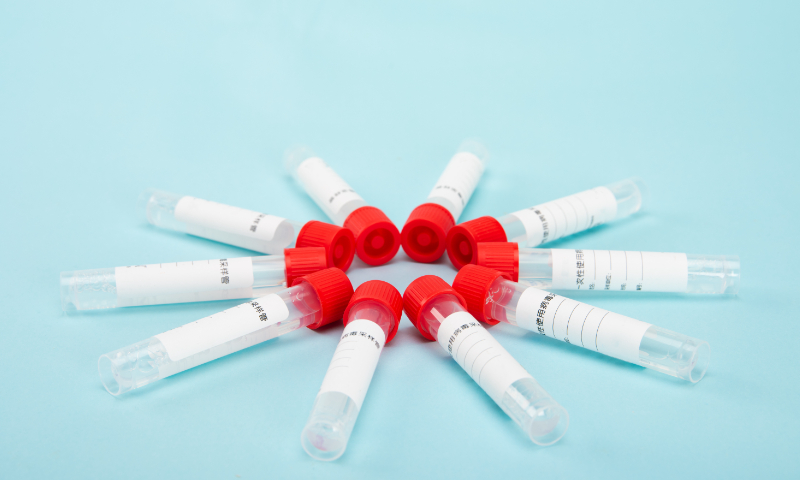
Photo: VCG
Siping, a city in Northeast China's Jilin Province, cancelled on Tuesday the unlawful penalty for people who fail to take the citywide COVID-19 nucleic acid test two or more times, including a 10-day administrative detention, after an early version of the city-wide COVID-19 notice caused controversy and was criticized for lacking legal basis.
The local anti-epidemic authority said in the previous version of the notice that all citizens in Siping city are required to take the citywide COVID-19 test which will be conducted from 6 am to 5pm local time on Thursday.
"Those who fail to take the test without specific reasons and exemptions will be administratively detained for 10 days, fined 500 yuan ($75), denounced on media and put in a blacklist for dishonesty in accordance with China's Infectious Diseases Prevention and Treatment Law and the Public Security Administration Punishments Law", the previous notice warned.
The penalties mentioned above were deleted in the newly released notice, which also added more detailed arrangements for residents in special situations. For example, disabled people and the elderly can wait for testing workers to take the test at home, and those who miss the test in the assigned day and time can have a supplemental test done from 5 pm to 10 pm.
The old version of the notice caused controversy among the public because it would have made Siping the first city in China to punish residents who refuse to take COVID-19 test with administrative penalties. Other cities like Beijing only ban people without a negative test result from entering public places, such as supermarkets, or using public transportation.
The penalty of administrative detention immediately became a hot topic in Chinese social media. As related hashtags have racked up more than 120 million views and comments on China's Twitter-like Sina Weibo since the release of the notice on Tuesday morning, netizens questioned whether the laws mentioned in the notice actually provide the legal support for the administrative detention.
Experts pointed out that, despite the original intention of conducting a precise mass testing was reasonable and understandable, the administrative detention must be conducted in accordance with the law and such a penalty clearly lacked the specific legal provisions.
Lan Tianbin, a lawyer of the Dongheng Law Firm in East China's Jiangsu Province, said that while the public should understand and support Siping's maximized anti-epidemic measures, which are intended to make the test results more concise, the penalty of administrative detention has no legal basis and violates China's Legislation Law, Administrative Punishment Law and Administrative Coercion Law.
There is no concrete article in China's Infectious Diseases Prevention and Treatment Law and Public Security Administration Punishments Law mentioning administrative detention for those missing COVID-19 mass testing, Liu Ruishuang, Deputy Director of the Department of Medical Ethics and Law of the School of Health Humanity in Peking University, told the Global Times on Tuesday.
According to China's Infectious Diseases Prevention and Treatment Law, compulsory quarantine and treatment can only be imposed on confirmed infection cases, suspected patients and close contacts to the patients, said Liu.
Liu said the local administrative authority should carefully use their power in accordance with the law.
Jilin Province toughly grappled with a COVID-19 outbreak, from March to April, when the total number of infections surpassed 70,000. The province reached the zero-COVID status at the community level in mid-April.




